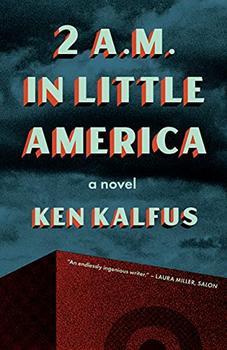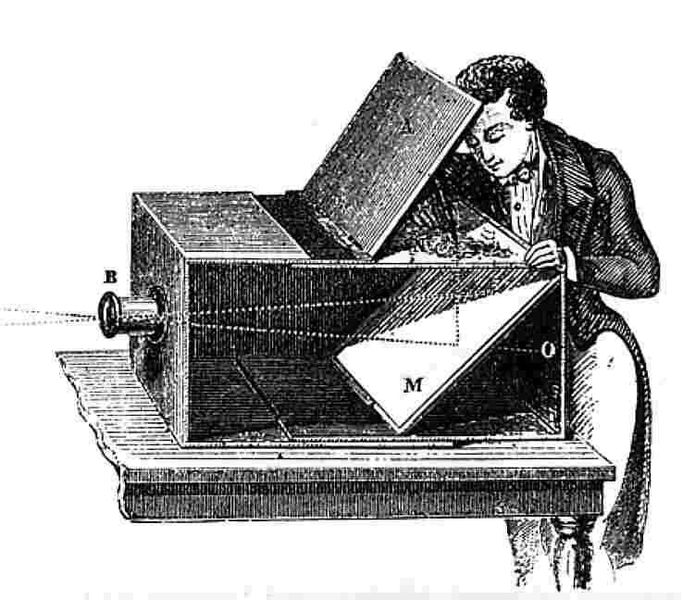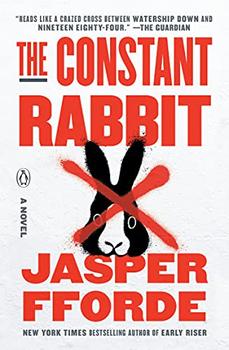Summary | Excerpt | Reviews | Beyond the book | Read-Alikes | Genres & Themes | Author Bio

From "an important writer in every sense" (David Foster Wallace), a novel that imagines a future in which sweeping civil conflict has forced America's young people to flee its borders, into an unwelcoming world.
One such American is Ron Patterson, who finds himself on distant shores, working as a repairman and sharing a room with other refugees. In an unnamed city wedged between ocean and lush mountainous forest, Ron can almost imagine a stable life for himself. Especially when he makes the first friend he has had in years―a mysterious migrant named Marlise, who bears a striking resemblance to a onetime classmate.
Nearly a decade later―after anti-migrant sentiment has put their whirlwind intimacy and asylum to an end―Ron is living in "Little America," an enclave of migrants in one of the few countries still willing to accept them. Here, among reminders of his past life, he again begins to feel that he may have found a home. Ron adopts a stray dog, observes his neighbors, and lands a repairman job that allows him to move through the city quietly. But this newfound security, too, is quickly jeopardized, as resurgent political divisions threaten the fabric of Little America. Tapped as an informant against the rise of militant gangs and contending with the appearance of a strangely familiar woman, Ron is suddenly on dangerous and uncertain ground.
Brimming with mystery, suspense, and Kalfus's distinctive comic irony, 2 A.M. in Little America poses several questions vital to the current moment: What happens when privilege is reversed? Who is watching and why? How do tribalized politics disrupt our ability to distinguish what is true and what is not? This is a story for our time―gripping, unsettling, prescient―by one of our most acclaimed novelists.
Part dystopian thriller, part political allegory, 2 A.M. in Little America is an intriguing, at times cryptic read with Kafkaesque elements that brilliantly evoke a sense of anxiety and alienation, estrangement and displacement. Ron's memories shift in and out of focus, facts dissolve into uncertainty, identities blur and even the city he moves through morphs into a surreal landscape of optical illusions as the glass buildings he passes cast off a dizzying array of reflections—vividly symbolizing the disorientation that ensues when the narratives we rely on to make sense of the world are disrupted and our perception of reality fractures into a multiplicity of perspectives...continued
Full Review
 (586 words)
(586 words)
(Reviewed by Elisabeth Herschbach).
 A central theme in 2 A.M. in Little America is the difficulty of distinguishing between truth and illusion, and Pushcart Prize-winning writer and journalist Ken Kalfus uses recurrent imagery throughout the novel of mirrors, lenses and reflective surfaces to symbolize the way that our perception of reality is filtered through and refracted by our own subjective experience—like the "cacophony of reflected images" Ron Patterson sees bouncing off the mirrored surfaces of a glass building he passes on the way to work.
A central theme in 2 A.M. in Little America is the difficulty of distinguishing between truth and illusion, and Pushcart Prize-winning writer and journalist Ken Kalfus uses recurrent imagery throughout the novel of mirrors, lenses and reflective surfaces to symbolize the way that our perception of reality is filtered through and refracted by our own subjective experience—like the "cacophony of reflected images" Ron Patterson sees bouncing off the mirrored surfaces of a glass building he passes on the way to work.
In a particularly suggestive scene, Ron comes across assorted tools in a science classroom that set off a cascade of memories from his own high school physics class—bits and pieces of equipment, concave and ...

If you liked 2 A.M. in Little America, try these:

by Rumaan Alam
Published 2021
A magnetic novel about two families, strangers to each other, who are forced together on a long weekend gone terribly wrong.

by Jasper Fforde
Published 2021
A new stand-alone novel from the New York Times bestselling author of Early Riser and the Thursday Next series.